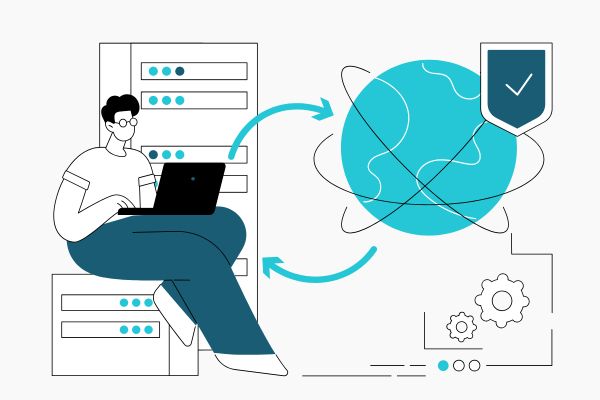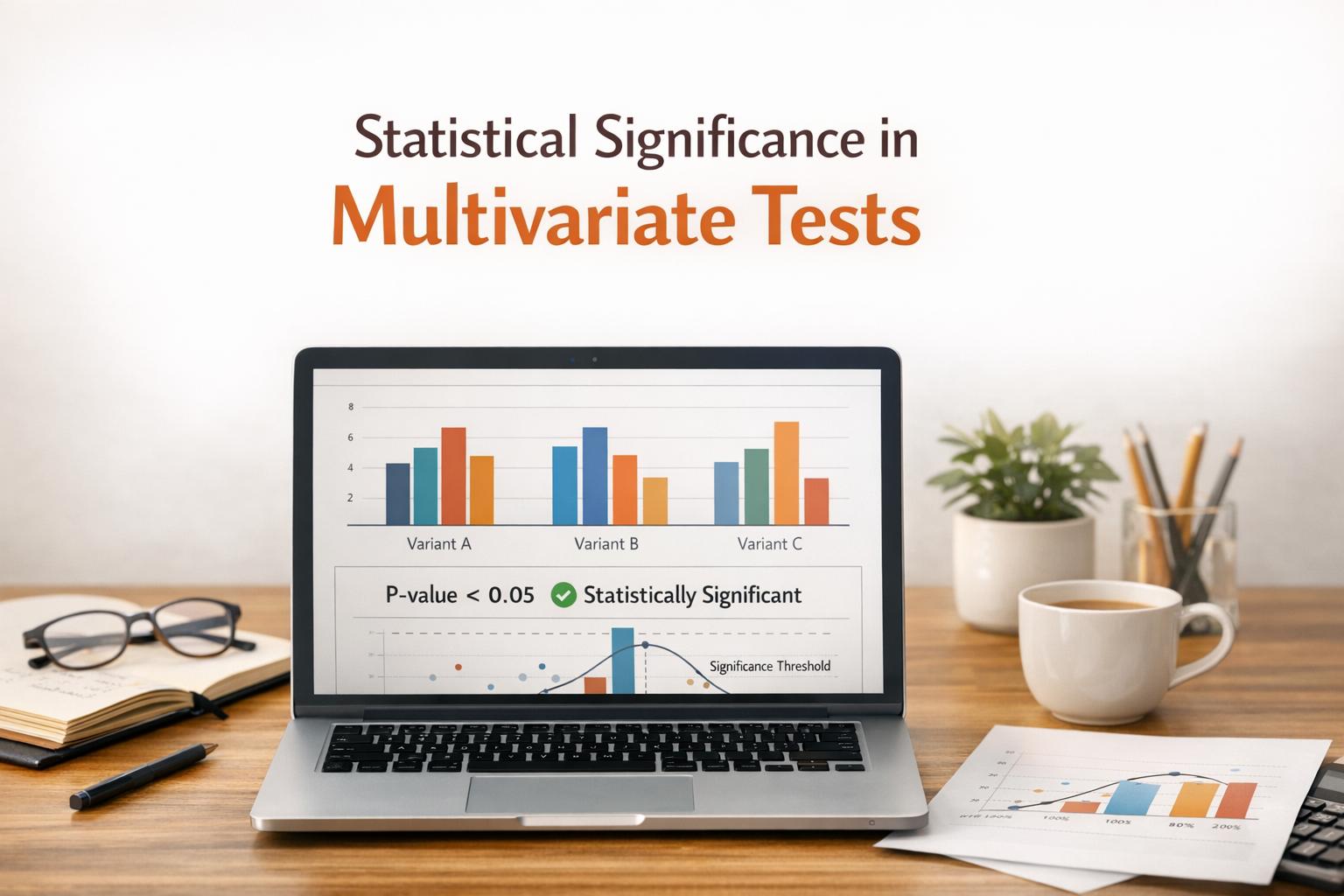

How To Optimize for AI in 2025

How To Optimize for AI in 2025
 20-10-2025 (Last modified: 20-10-2025)
20-10-2025 (Last modified: 20-10-2025)
If you’re reading this, you’re probably scratching your head and asking: “Do I still care about SEO in the age of AI?” The short answer is yes, but how you optimize is rapidly shifting now that GEO is involved… You now need to focus on how to optimize for AI, as well as for humans.
AI-powered search and answer engines like ChatGPT, Claude, Gemini and the AI-driven features in Google Search (for example “AI Overviews”) are changing the playground for content, keywords and traffic. Your experience on traditional Google search still matters but increasingly you’ll want to show up in the AI results themselves.
This post dives into what it takes to optimize for AI search in 2025, covering the mindset shift, tactical checklist, and how you can leverage it for wins.
What’s really changed (and why it matters)
The shift from “10 blue links” to AI answers
Traditionally, search meant you type a query, you get a ranked list of links, you click – safe and simple! But in 2025 we’re increasingly seeing: query, AI-powered summary/models, then ultimately zero or fewer clicks.
Some key stats:
-
In Q1 2025, AI “Overviews” had over 1.5 billion users monthly. Ahrefs
-
One study found 13.14% of all queries triggered Google’s AI Overview in March 2025 (up from 6.49% in January). MonsterInsights
-
For many sites, organic click-through rates (CTR) are dropping. One analysis shows AI Overviews reduce clicks to websites by 34.5%. Ahrefs
-
Among SEO professionals: 91% say decision-makers in their business now ask about “AI search visibility”. Yet 62% say AI-search still drives less than 5% of revenue. Search Engine Land
The upshot: Content that only targets traditional SEO may lose relevance; content needs to be “AI-friendly” to compete for new kinds of discovery.

New behaviours and expectations
-
Users expect direct answers, not just a link to click. AI result formats often summarise or aggregate multiple sources.
-
Trust and transparency matter: a recent academic study found that generative AI search must include clear citations/references to build trust, even when the answer is technically correct. arXiv
-
For brands/publishers: more earned-media visibility (being cited by others), strong E-E-A-T (Expertise, Experience, Authority, Trustworthiness), and structured data are becoming important signals in AI search. First Page Sage
Why you should care
-
Being visible in AI results (not just ranked #1) means capturing the attention of a new kind of searcher, and even if they don’t click through, the brand impression counts.
-
When they do click through, they tend to spend more time. One report notes that traffic referred via AI-powered results converts at ~4.4× the rate of traditional search traffic. beebyclarkmeyler.com
-
If you ignore AI search optimisation, you risk losing ground to competitors who do. With AI-search steadily rising, early mover advantage counts.
The 2025 AI-Search Optimisation Playbook
Here’s your step-by-step checklist to optimize content and pages for AI search.
1. Think about intent differently
-
Traditional SEO: match keywords → match pages.
-
AI-search: solve queries, provide concise answers, incorporate context and follow-up logic.
Ask yourself: If an AI model is summarising this topic, what key points will it pull? -
Use conversational queries, for example – not just “buy gym shoes” but “what are the best gym shoes for weighlifting under £150?”
-
Include user-friendly sections such as FAQs, bulleted key take-aways, clear context. These formats are easily parseable by AI.
2. Bump up your authority and earned mentions
AI-search leans heavily on brand citations, third-party mentions, and structured data.
-
Secure mentions in trusted places: industry reports, Wikipedia, authoritative blogs/forums.
-
Use structured data (Schema.org) to label content (articles, FAQs, products, how-tos). This helps AI systems digest your page. Many AI-search guides highlight structured data as a top tactic. Search Engine Land
-
Don’t just rely on your own domain – AI models give weight to what others say about you. One study found that “being mentioned on highly linked pages” correlates with visibility in AI Overviews. Ahrefs
3. Format your content for AI consumption
-
Make sure answers are clearly visible (H2/H3 headings, bullet lists).
-
Provide concise “snack-answer” sections at the top of longer posts (one-paragraph summary). AI engines often draw from that.
-
Include FAQs or “common questions” sections. These are like tender for AI result snippets.
-
Use clear, descriptive headings, and avoid overly flowery language – AI models value structure.
-
Use internal linking and anchor text to show topic clusters and context relationships.
4. Optimize your on-page & technical foundation
-
Site speed, mobile-first design, Core Web Vitals still matter (even for AI results).
-
Ensure your pages are crawlable and indexable; even if AI doesn’t send direct clicks, being indexed matters.
-
Use canonical tags, proper meta descriptions, clear URLs.
-
Implement structured data for Articles, FAQs, Products, HowTo etc.
-
If your content relies on data, research or expert insight, reference sources clearly (proof helps AI models treat your content as trustworthy).

5. Adapt to “generative engine optimisation” (GEO)
The term GEO (or AEO: Answer Engine Optimisation) is being used in the industry to define optimisation for AI/LLM-powered search. For example:
-
A recent survey found 36% of SEOs call it “AI search optimisation”, 18% call it “generative engine optimisation (GEO)”. Search Engine Land
-
One guide maps out ranking-factors for various AI platforms: mentions in “authoritative lists” carry 41-64% weight depending on the tool. First Page Sage
So plan your content strategy not just for Google rankings, but for how AI engines treat and leverage that content.
6. Measure differently (and be patient)
-
While clicks are still important, in the AI world you may see brand impressions or mentions that don’t result in a traditional click.
-
Define new KPIs: “number of AI citations”, “visibility in AI answer boxes”, “traffic from AI direct-answer clicks”, “scroll-depth of AI referred visits” etc.
-
Be prepared: many SEOs report AI search still drives <5% of revenue but the trend is upward. Search Engine Land
-
Use A/B tests: for example try variations with structured data vs without; FAQ inclusion vs none; measure impact on AI-driven metrics.
7. Update your content-creation workflow
-
At PageTest.AI we always emphasise testing: generate variations of copy, headlines, CTAs targeting both humans and AI models (since AI might pull from different phrasing than humans expect).
-
Ensure your content doesn’t feel “machine-generated” to the reader—authenticity still matters. A recent report says clearly labelled AI content is deprioritised, while human-written content continues to be preferred. Axios
-
Focus on experience and expertise: users clicking from AI channels tend to be more qualified, so emphasise quality, depth, uniqueness.
8. Align your brand strategy for AI-native discovery
-
Think about opportunities beyond your site: guest posts, expert commentary, mention in trusted databases/lists—because AI engines use earned media.
-
Monitor where your brand is cited in other places; brand mentions act like “votes” for AI models.
-
Consider schema markup for your brand: Organisation, Person (authors), Brand – so AI systems can recognise and attribute you properly.
Practical Example: “What to do next”
Let’s say you run a SaaS product for remote teams. Here’s how you can apply the playbook:
-
Write a blog post: “5 ways remote teams can boost productivity in 2025”.
-
At the top include a clear bullet list summary: What you’ll learn: …
-
Use H2 headings like:
-
“Why remote productivity has changed with AI tools”
-
“Optimize your team workflows with async sprints”
-
“Measure productivity via engagement—not just hours”
-
-
Add an FAQ section at the end: “How often should we review workflows?” “What metrics matter post-2025?”
-
Use structured data: mark the blog as an Article, and the FAQ section with FAQPage.
-
-
Earn mentions:
-
Reach out to industry websites and ask for inclusion in round-ups (e.g., “top remote tools for productivity”).
-
Get featured in a trusted list like “Best remote team productivity platforms 2025”.
-
-
Technical checks:
-
Ensure the page loads fast (<2.5s), is mobile-friendly, has good Core Web Vitals.
-
Check that schema markup is valid using Google’s Rich Results Test.
-
-
Testing with PageTest.AI:
-
Generate two variants of the headline: “5 game-changing ways remote teams can boost productivity in 2025” vs “Remote teams: 5 proven productivity hacks (2025 update)”.
-
Test two versions of the summary paragraph.
-
Launch and track scroll depth, conversion rate, and whether your brand gets cited/mentioned elsewhere.
-
-
Monitor results:
-
After 4–6 weeks, check if the page appears in any AI answer summaries (you may need to manually search your key queries in ChatGPT, Perplexity or Google’s AI mode).
-
Track whether visits from AI engines convert at a different rate (as the research suggests they often do).
-
Adjust based on performance: tweak formatting, add more citations, update the content to reflect new tools/updates.
-

Common Mistakes to Avoid
-
Treating AI search like “just another SEO channel” – It isn’t. The rules differ (structure, authority, summarisation matter more).
-
Focusing only on traditional keywords and ignoring conversational queries – AI search thrives on natural language and context.
-
Ignoring structured data / schema markup – Many AI systems rely on metadata and structured snippets.
-
Publishing shallow, generic content – AI search rewards depth, clarity and distinct value; thin content risks being bypassed.
-
Waiting until AI search becomes “big” – By 2025 it’s already visible; being late costs ground.
-
Only measuring clicks – If you miss AI-citations or brand visibility in AI answer boxes, you’re ignoring a key source of value.
The Future: What to keep an eye on
-
AI-search tools will become more multimodal (image, voice, video input). Prepare content for more formats (e.g., transcribed video, hero visuals, audio summaries).
-
Attribution and tracking will get trickier with “zero-click” experiences: you may get value without traditional metrics showing it.
-
“Authority fatigue”: As AI models rely on third-party signals, new brands will need to earn visibility rather than relying solely on domain SEO legacy.
-
Personalisation: AI results might become more personalised based on user history/context, so you may need to shape your content for segments (not just broad audiences).
-
Testing across AI engines: Each platform (ChatGPT, Gemini, Perplexity etc.) pulls differently, so the “one-size-fits-all” content may not win across all.
FAQ
Q: What’s the difference between Optimising for AI Search and regular SEO?
A: Traditional SEO focuses on keywords, links, ranking in search engines. AI Search optimisation emphasises being source-able, structured, conversational, and appearing in AI result formats (summaries, answer boxes, citations). The shift is from ranking to being quoted or summarised.
Q: Does this mean we should stop caring about Google organic ranking?
A: Not at all. Google still dominates a vast share of traffic. But yes—it means you should also optimize for the new AI layers on top (or beside) traditional search. Think of AI search as an additional discovery channel.
Q: How do I measure success for AI-search optimisation?
A: Look beyond standard metrics:
-
Are you mentioned in AI answer summaries (manually check key queries)?
-
Are conversion rates from AI-referred traffic higher? Research suggests ~4.4× traditional traffic. beebyclarkmeyler.com
-
How is your brand being cited or appearing in third-party lists or authoritative sources?
-
Monitor scroll depth, engagement, citation volume, vs just clicks.
Q: Should we regenerate all our existing content for AI-search?
A: You don’t have to, but a good approach is to prioritise your top-performing pages (or those with high business value) and optimize them for AI: add FAQs, summary sections, structured data, update for context. Over time you can apply a light optimisation to other content.
Q: Is AI-generated content acceptable?
A: You can use AI tools, but the key is human review and quality. Research shows content clearly labelled as AI-generated is often deprioritised. Axios Also: for AI search you are judged on expertise, trust – but authenticity counts.
Q: What’s the biggest “quick win” for someone starting out?
A: Add a well-formatted FAQ section to a key page and apply schema markup for FAQPage, and ensure a clear summary paragraph at the top of your article. These are often “low hanging fruit” for AI visibility.
Q: How do we compete if our niche is ultra-competitive?
A: Focus on:
-
Building unique evidence or research (case studies, original data) so you become a go-to reference.
-
Earning mentions in authoritative sources (industry reports, lists).
-
Structuring content so AI engines can easily parse and extract your key points.
-
Audience-retention: even if you appear in an AI result, the click through will go to those with strong pages, so your content must still take care of humans.
Optimize for AI: Final Word
Optimising for AI in 2025 isn’t about abandoning SEO – it’s about evolving it. The rules are changing, but the underlying goal remains the same: help people find and trust your content.
If you approach your content with the dual lens of “human-friendly” and “AI-friendly”, you’ll be well-positioned for whatever future search landscapes bring. And tools like PageTest.AI can help you create, test, and iterate on the variations that play well for both humans and machines.
Ready to test your next piece of content for AI-search performance? Let’s go!!
say hello to easy Content Testing
try PageTest.AI tool for free
Start making the most of your websites traffic and optimize your content and CTAs.
Related Posts

 26-01-2026
26-01-2026
 Ian Naylor
Ian Naylor
Category Page Layouts That Boost SEO
Optimize category pages with clear hierarchies, concise above-fold copy, mobile-first layouts, schema, image optimization and pagination to increase traffic.

 24-01-2026
24-01-2026
 Ian Naylor
Ian Naylor
Statistical Significance in Multivariate Tests
How to get reliable results from multivariate tests using fractional designs, statistical corrections, variance reduction, and AI automation.

 22-01-2026
22-01-2026
 Ian Naylor
Ian Naylor
AI in Real-Time Performance Monitoring
AI-powered real-time monitoring uses predictive analytics, adaptive anomaly detection, and automation to cut downtime, boost efficiency, and improve conversions.
